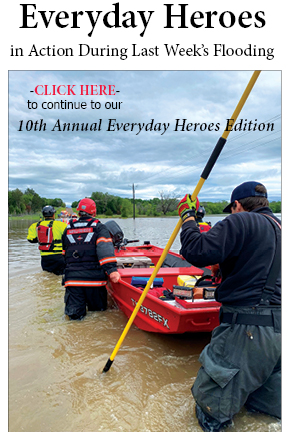Social media, online dating apps and matchmaking services are great ways of meeting new and interesting people for those looking for love, but beware – the people you meet may not be who they appear. Reports to government agencies and Better Business Bureau describe, in heartbreaking detail, the use of romance scams to steal millions of dollars from the public. In 2021, the FTC reported a record $547 million lost to romance scams, while reports to the FBI’s Internet Crime Complaint Center (IC3) totaled over $956 million.
Multiple reports to Better Business Bureau’s Scam Tracker from Texas residents in 2022 bring the tactics of these con artists into focus. In contrast to most other mass-market fraud, scammers know it takes time to build trust and develop a romantic interest and will spend weeks, months or even years kindling a romantic spark before asking for money. Most claim to work irregular hours in countries outside the United States in the military, medical field, nonprofit sector or oil and gas industries. Once confident they have established trust, the scam begins in earnest using an unbudgeted emergency as the catalyst. Some may claim they need money for a medical operation for themselves or their children or to prevent home foreclosure.
If money is provided once, it will only be a matter of time before another request comes through. Other versions of romance scams include cryptocurrency investments and extortion by threatening to share private pictures or videos publicly. Romance scams can be particularly devastating due to the financial and emotional toll they can inflict.
BBB provides the following tips to help avoid romance scams:
Be cautious of immediate confessions of love. For most people, falling in love takes time and shared experiences. Even if reciprocated, quick confessions of adoration and love should be treated with caution, especially before meeting in person or participating in a digital date. Con artists are well-versed in making themselves appear to be what they are not, including using language that may seem to be genuine.
Never wire money to online interests. No matter how much the person claims they need the money or what will happen if they do not have it, never transfer funds to online interests through a wire service, bank transfer or gift card. Scammers know that these payment methods are fast, anonymous and almost impossible to reverse.
Verify the authenticity of photos. A common tactic of scammers is to steal photos online of either people they claim to be or of locations where they claim to live. Use reverse image search to see if the photo is publicly available or of another person. Scammers are proficient in editing software and may use a standard picture of a landmark with a picture of themselves edited in. Look for the hallmarks of edited photos, such as signs of warping, an interrupted background pattern or missing shadows.
Do research, ask questions. Spend time researching the area they claim to live in for popular landmarks or attractions. Once you’ve compiled a list of places they are likely to know about if they live in the area, ask pointed questions about them and their opinions. Ask about some of their favorite places to eat, socialize or visit in the area and verify those locations exist. Ask about their employment – if they work on an oil rig, ask what company owns it or what organization they are a doctor for. You can verify some of this information online, but these questions may also expose a scammer if they struggle to answer them easily.
For more information about how to identify and avoid romance scams, visit BBB.org/Romance.
If you have been a romance scam victim, report it to BBB Scam Tracker and the FTC. Information provided may prevent another person from falling victim.
ABOUT BBB: The Better Business Bureau has empowered people to find businesses, brands and charities they can trust for over 110 years. In 2021, people turned to BBB more than 200 million times for BBB Business Profiles on 6.3 million businesses and Charity Reports on 25,000 charities, free at BBB.org. Local, independent BBBs can be found across the United States, Canada, and Mexico, including BBB serving the Heart of Texas, which was founded in 1950 and serves 105 counties across Texas.




